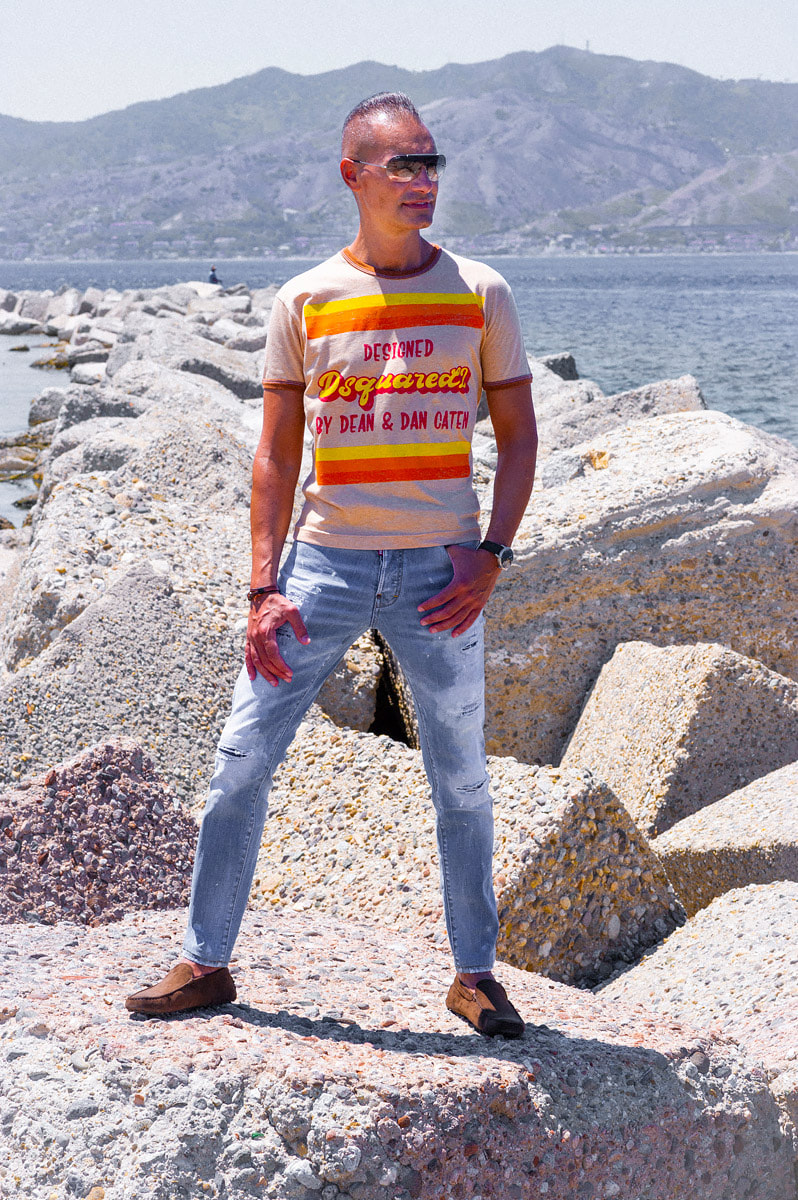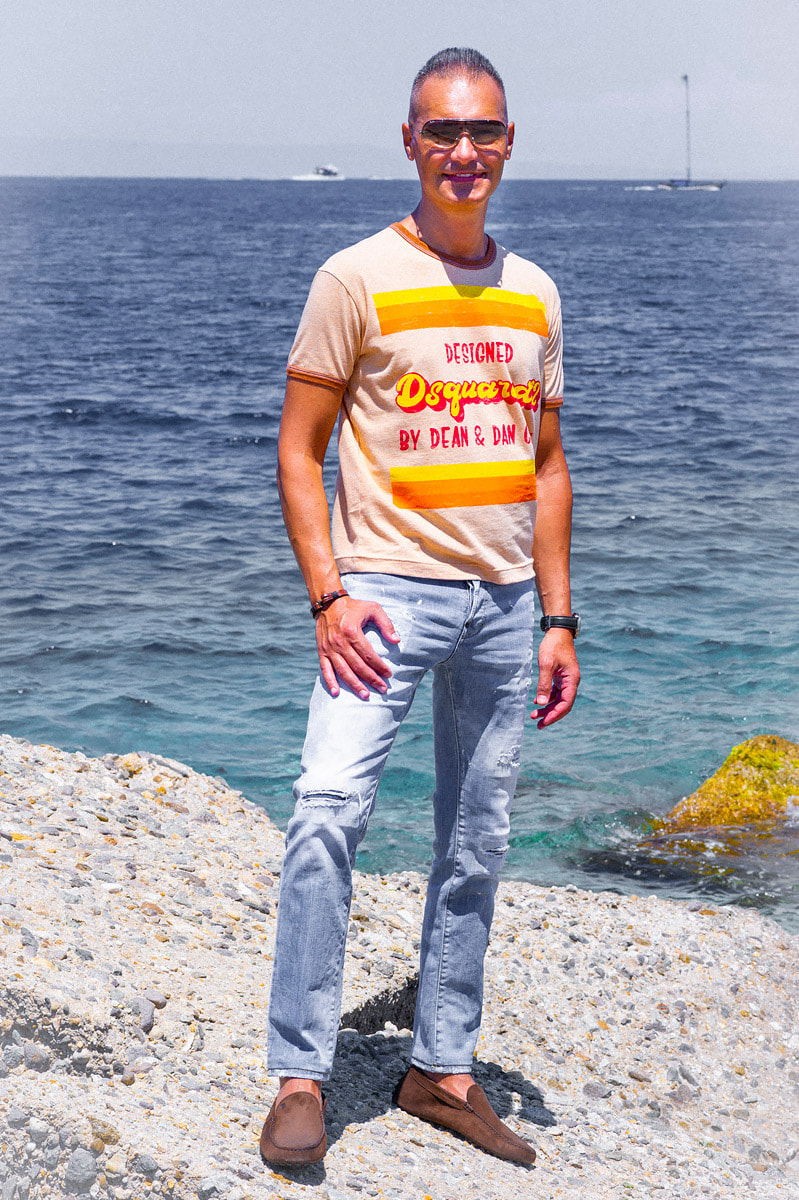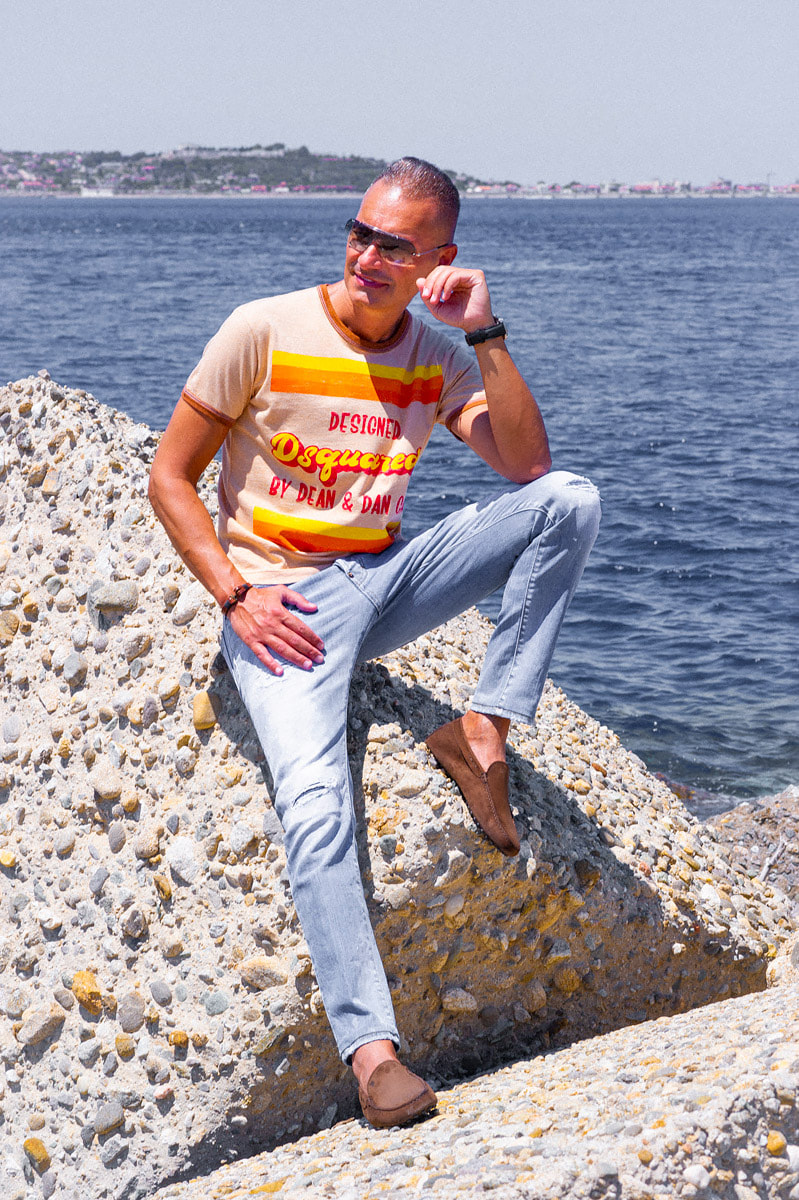By Antonio MalaraFor me cinema as well as literature have been essential as a source of inspiration, in real, imaginary and creative life. The period of our life in which a film or a book gives us a strong inspiration is very important and when we find ourselves following the story of a character who is more or less our age in the film, we experience it in a completely different way. There is a film that certainly more than any other represents a turning point and a new awareness in my life, a film that has given me new visions both from a cinematographic and a creative point of view. When I first saw “Boogie Nights” I was about 17, roughly the same age as the protagonist was during the first part of the film. The story revolves around a boy who wants to assert himself in life, who wants to prove that he has a talent. He will be successful as a porn actor, also helped by the size of his penis. Watching that story made me realize that if we have a dream or an aspiration we have to do everything to achieve it as soon as possible and not postpone it as my tendency was when I was young. It's a film that, in addition to being masterfully shot with so many long shots, gave me incredible motivation as a story. All this in a very particular context, namely the seventies. Initially I didn't pay much attention to that very particular detail because I was focused on the personal story of the protagonist. When I began to watch the film several times I noticed how the seventies had a very fundamental role not only as aesthetic but also from a cultural point of view. The film described the world of porn, of the drugs the protagonists used, but it also spoke of feelings and generally conveyed a sense of freedom. I loved the moment in which the protagonist achieves success and consequently also his economic peak. This manifested itself in a luxurious and eccentric style represented by clothes with the perfect style and fit, a beautiful design house and a Chevrolet Corvette which for me ever since has represented perfection when it comes to cars. In other words, I understood that it was not only the story that gave motivation but also and perhaps above all the years in which the story was set, the seventies to be precise. There is a tendency to recognize current times as more advanced and past times as old. It's something we have inside and it's a mistake I made in part too. Thanks to some reading I discovered that even more than half a century ago there were passions, transgressions and excesses of life. Of course, everything has always been omitted by censorship, both in films and in literature, DeSade's books have never been studied in school. Another reason that leads us to think of the past as "old" is today's technology. We feel important and modern because with a mobile phone in hand we think we can get what we want and we consider losers those of the past who didn't have them there. Not only are we not the coolest but above all we were deceived because in reality the technology we use today already existed at a military level in the past, only it wasn't so pocket-sized. Some time ago I didn't have this awareness and initially even if I liked the 70s I tended to recognize them as beautiful but from the past, with a negative meaning. Today we know that technology turns against us in most cases so in essence the reality is that the 70s were the maximum expression of coolness and freedom also because that part of technology was missing. That technology that today only serves to make us controlled therefore not free. Having achieved all this has led me to see not only the 70s but also other periods with a different eye and even if I lived my youth in the 90s I still consider myself lucky. In fact, from the 70s to the end of the 90s it can be said that the lifestyle from a cultural point of view has always been the same. The changes began with the advent of the first mobile phones and the first PCs, I personally identified the turn towards slavery with the year 2013 as I wrote in my post "2022 Escape from Socia Networks". In essence, with this post I'm going to describe an unconscious path that made me realize that I've always loved the 70s but I didn't know it. There is a series of Italian films shot in Miami starring the actors Bud Spencer and Terence Hill. Most of those films were shot in the 70s, the leitmotif of almost all the plots was the arrogance of the strong over the weakest and the protagonists solved the problem by dint of punches. My generation grew up on those movies and to this day we know and quote whole lines when we're in groups with my friends. Basically in my mind as a kid while recognizing the diversity of American scenarios which were different from those where I lived, however I somatized the look, style and even the colors of those years. Also as a child I watched the American TV series of which I remember most "Starsky and Hutch", "Chips" and also "Sanford and Son". Even these TV series respected a certain aesthetic style that left a very deep imprint on my unconscious. It was only when I grew up, with changing fashions and after cultivating a particular passion for cinema, that I achieved all this and gave even more value to the 70s. In fact, the passion for cinema made me rediscover and appreciate aspects that I could not notice as a child. Watching movies like Easy Rider (although it's from 68 and which I've already talked about in this post here), Taxi Driver where Scorsese decisively describes the America of the marginalized, or the character of the preacher who seduced women in "The Ballad of Cable Hogue“ By Sam Peckinpah. In the films of that period there was a certain freedom to tell stories, there wasn't the pathetic censorship of today. Everything had a real dimension, because violence, anti-heroes and promiscuous sexuality have always existed and are also part of today's reality but we try to omit. However, from a cinematographic point of view, I also want to mention a master like Woody Allen who in those years described society from a psychological point of view. The New York director has not only represented the neuroses of couples in an excellent way, but he has done so by making extensive use of artistic and cultural quotes. Even today, after watching a Woody Allen film from that period, one must go and study the personalities and cultures that he mentions in his films. It is also impressive how the events told by Allen in those films are still relevant today. America was probably culturally advanced then and in fact people had the neuroses that here in Europe arrived much later. But even today Allen's films are a real guide and a form of self-analysis to understand couple relationships and the individual neuroses of modern man. There is nothing that is shown today from a relationship point of view, that was not already described by Woody Allen 50 years ago. Also from a musical point of view the seventies were important because was valid the same rule of freedom. From disco music to rock, what struck me most about those years was the experimentation, I’m thinking of songs by Elo, Queen or David Bowie. From mixing rock and classical music to new electronic solutions. At the same time there was no shortage of rock melodies like Tom Petty and the Heartbreakers or the words of freedom and sincerity of the text "The Joker" by Steve Miller Band. Furthermore, in the 70s music had a particular stage through Studio 54. Born in the late 70s, it was an icon venue of entertainment and the freedom of celebrities. A place for a few but in a certain sense a necessity dedicated to famous people who also needed their Dionysian spaces without being victims of the fans. Today celebrities don't have the same freedom or such a place, today everything is gossip and showcase. Today only Paris Hilton is able to show her artistic freedom in public, I don't see celebrities really having fun. All I see is people posting photos of themselves pretending to be happy by diving off a boat or under the Coachella Ferris wheel. What still intrigues me a lot today is the phenomenon of the hippies. I mean that I really would have liked to see them and hanging out with them at that time to actually see what they were like. I have an idea that probably isn't accurate about them and it kind of reminds me of how Tarantino describes and ridicules them in “Once Upon a Time in Hollywood”. More than anything I would have liked to know if I ever became like them if I lived during those years. I like freedom but also elegance and objectively hippies didn't care about this aspect, however they had freedom in the form of a van, a guitar and colorful clothes. It makes me laugh today when I see modern hippies, especially couples, with old Volkswagen vans and fake shabby clothes. As hippies they stand out because they walk around with six or seven credit cards, three each. This is because even today someone tries to imitate those years but it is impossible to break away from modern capitalism. In the 70s there was true freedom (let's say even up to the mid-90s) little or no technology, zero digitization. At the time you could really get into a car and wander around to feel free, today we are super controlled by infinite cameras and easily available to anyone via mobile phones. The path of the modern hippies that I mentioned earlier is mapped by the computers of Visa and Mastercard. I think not only sexuality but also homosexuality was lived more freely in those years. I saw a documentary about Freddy Mercury and it was impressive to see how he lived true freedom by manifesting the concept of love through promiscuity by mixing with normal people. It was a homosexuality lived without brakes and prejudices, he did what he felt like doing and was not driven. Today homosexuals people are part of the establishment, with the subcategories of guests and TV presenters. At the right moment, they are exploited as when victims are concerned with minor rights. Surely in many countries there are still objective problems regarding the legitimacy of the gay marriage for example but I don't like it when certain attitudes are flaunted or when victimization takes place. But surely the crowning glory of the 70s, the one that set the seal as the perfection of all eras and made me regard those times as the best, was a biography of Steve McQueen. At the height of his career, the actor enjoyed the maximum expression of freedom, a bit male chauvinist but unrepeatable today. A celebrity like him could afford the luxury of detaching himself from the boring habits of Hollywood and living sexuality and adultery to his liking. The wife by day and the groupies by night. Yes, because the groupies who kept McQueen company at night didn't feel exploited but were proud. Groupies followed and mated with their idols out of pure love, they wanted nothing in return but companionship and sex. Today if a famous person has an extramarital affair risks only being reported. This is because there are girls who are manipulated by powerful people always and only for economic purposes and in any case there is no basic concept of fun but only notoriety and money. The groupie concept, on the other hand, was true female freedom, they did what they felt like doing without being manipulated and without fear of being judged, because that behavior was not punished by feminists but was simply a behavioral model like any other. Groupies made themselves and men happy, sadly today this phenomenon is science fiction, from that point of view we have had a real involution. Today this phenomenon would be described as discriminatory and sexist by some expert of modern good manners. In exchange, however, today there is the female manager, stressed and sexually frustrated because she cannot be a mother or mate properly with her modern man of hers who in the meantime has become a total dumber. The modern male can't stand up to the female manager and could never interact with the groupies and be a sexual object for women, he would get confused and lose the few and vacillating certainties he has. Today man is already a victim of modern relationships and cannot handle the apparent modern female freedom or being a victim of it. Already today men have the syndromes that Woody Allen exacerbated in the 70s, men in crisis who rationalize the relationship and confide in their friend. Men who are no longer able to protect but need protection like children. This is the best part because unfortunately the worst part is the loss of man's identity in modern relationships which often leads to violence, the worst and final phase that man can reach. Unfortunately, with this post I have not been able to pay a real tribute to the 70s, this is because the difference with our times is too big, there is a separation of customs and traditions that seems a hundred years away. Seeing through movies or books a now lost reality that I would have liked to live, made me fall into controversy by criticizing the behavior of modern times. However, this post also serves to reflect on where we have arrived and even worse where we will arrive at this rate. If twenty years ago I was happy to live in my times, today I’m no longer so because I have experienced the change from a normal era to a technological era that has almost managed to achieve the homologation of individuals. I grew up on the street, as a child I left the house without parental orders and came back with scratches and wounds because I did everything without worrying about the consequences. Spirit of independence and freedom, a palpable feeling only until the end of the nineties. Today I leave the house and getting into the car there’s a beep that reminds me I have to wear a seat belt that makes me feel in a cage. I walk with a phone that counts the steps I take plus a thousand other things and sends them to servers to cross-reference the data. I now have the perception that a big brother wants to know everything about me to predict my behavior as in Minority Report. I get home and apps tell me which girls I've met and who I should contact. All of this is repulsive, as well as being the opposite of freedom. My will is to fight all this even if I don't have a global plan yet. For the moment I continue to buy CDs to listen to music and Blu Rays to watch movies and in the future I will try to buy these things as well as books in dedicated stores and not on Amazon. A change and an awareness are needed, personally I find the cure by watching not only the films shot in the seventies but also those set in the same years. I began the post by quoting Paul Thomas Anderson's Boogie Nights and I conclude by quoting the director's latest film; “Licorice Pizza”, also set in the 70s. A simple story, with real characters immersed in everyday life that flows with people who look into each other's eyes and not lost inside the screen of a mobile phone. Pictures: Tonino Catalano
0 Comments
Leave a Reply. |







